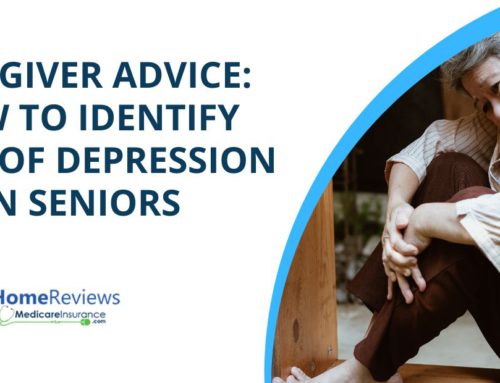
Choosing a memory care facility is one of the most difficult things a caregiver or care partner has to do.
Memory care is something that, unfortunately, home caregivers simply cannot provide. That’s why finding the best memory care facility you can is critical, both for your loved one’s well-being and your peace of mind. But what is memory care, and how does it differ from traditional assisted living?
The Basics of Memory Care

Memory care is a type of specialized nursing care designed for people (usually older adults) with dementia, Alzheimer’s, and similar conditions. There is, unfortunately, no cure for memory loss due to cognitive decline. However, skilled care can help keep your loved ones comfortable, mentally engaged, and most importantly, safe.
A unique challenge of memory care is the patient’s declining cognitive ability. While this manifests in a variety of forms, including behavioral problems and memory impairment. One of the most dangerous is wandering. Wandering occurs when a person with memory loss becomes confused about their situation, failing to recognize familiar people and places. If left unattended, they may wander away in an attempt to find familiar surroundings.
A person may attempt to ‘go home’ despite being in their own house or attempt to fulfill former obligations like going to work. In dangerous cases, someone may ‘forget’ that they are unable to drive, and attempt to operate a motor vehicle to disastrous results.
Sometimes, individuals with any form of dementia can become combative during these episodes, lashing out against caregivers in confusion and anger. In these cases, they present a danger to themselves and others and are at a higher risk of experiencing a dangerous wandering episode.
One of the key goals of memory care is to prevent these wandering episodes from occurring. While constant supervision and a secure environment can prevent a patient from getting into a dangerous situation, the focus of memory care is providing cognitive stimulation and enrichment. This can be done through activities such as art and music therapy, mental health therapies, games, and group activities.
The field of memory care is still evolving, placing an increased focus on overall well-being and quality of life. As such, it is important to be discerning when researching memory care facilities, as no two offer precisely the same experience.
Memory Care vs Assisted Living
A memory care facility or memory care unit may resemble an assisted living facility or nursing home at first glance. Indeed, many assisted living residential facilities have a memory care wing on-site, often in a different area from the other residents. However, memory care requires special considerations that a typical assisted living facility cannot provide.
Supervision and Security

A nursing home is not a prison. Legally, memory care residents have the right to leave at any time, provided they are of sound mind and not a danger to themselves or others. You are also allowed short trips to visit family, attend community functions, and generally live your life. You also have a right to privacy and self-determination: no one can force you to follow a schedule, or do anything you do not wish to.
All of these rights still apply to residents of a memory care community. However, it is important to focus on the terms ‘sound mind’ and ‘not a danger to themselves or others’. Unfortunately, people with dementia are not considered to be of sound mind and often pose a danger to themselves if left unsupervised. As such, you cannot freely check out of a memory care community without permission from a trusted agent (more on that below), and you may experience a reduced level of privacy
This is a fine line to walk: the best memory care facilities should be secure enough to ensure the safety of its residents, but open enough to allow them to exercise freedom of choice and agency. Assisted living facilities excel at the latter, but simply are not equipped to deal with the former. They may lack sufficient staffing, or have access to areas that it would be dangerous for someone experiencing a wandering episode to stumble into.
Specialized Training

Dealing with dementia patients requires a certain level of patience and grace that is not necessarily a part of nursing training. Memory care nurses are trained in therapeutic techniques to care for patients in cognitive decline and know how to respond in the event a patient becomes combative or begins to wander.
However, not all assisted living facilities are prepared to house combative residents. Residents posing a danger to staff and other residents often leads to eviction, which makes finding properly equipped memory care services and memory care programs even more important.
Autonomy

Combining both of the above factors is the need for patient autonomy: the freedom to make choices (albeit slightly more limited ones), enjoy their lives, and be seen as a person. The concept of patient autonomy is a novel concept in memory care assisted living, and people often view dementia as a death of the self; the body is there, but the mind is gone.
However, it is more accurate to describe dementia (especially in its milder forms) as a difficulty interacting with the world. The person is still there, but the cognitive systems they use to navigate the world, like judgment and short-term memory, are malfunctioning.
It’s this disconnect that causes some of the more troubling symptoms of dementia, like wandering or combative behavior: the mental world no longer aligns with reality. Familiar landmarks and people are gone. Activities you once took for granted are no longer possible. Universal constants like time and distance no longer make sense. It is an intensely frustrating and isolating experience.
Treating people with Alzheimer’s and dementia as if they’ve already died is terrible cruelty. As such, when searching for a memory care facility, it’s important to consider how they treat their patients as people.
One new model of memory care facility is the ‘dementia village’; a facility designed to resemble an ordinary community instead of a medical facility. This means including supermarkets and restaurants, residences with kitchens, and staff that eschew the trappings of the medical profession in favor of more casual clothing.
While these facilities are slowly gaining traction in the United States, most memory care facilities still resemble more traditional nursing homes. However, that doesn’t mean they can’t strike a balance. Some facilities include “nostalgia rooms’ designed to help residents reconnect with their memories, along with amenities such as libraries, cafe spaces, and park areas.
What to Look for in a Memory Care Facility

While there’s no such thing as an ideal memory care facility, there are still questions that must be asked before committing to your choice.
Ideally, a memory care facility is dedicated exclusively to memory care, and has staff specially trained to deal with the unique needs of their residents. Unfortunately, finding a facility that is 100 percent dedicated to memory care near you is not always possible, so when looking at a mixed-care facility, it’s important to determine just how mixed the facilities are.
Ideally, the memory care facility should be kept separate, with distinct staff, residential, and common areas. It is fine to share certain areas like monitored outdoor spaces and medical facilities, but memory care requires specialized staff, and residents should not be able to wander into areas where they could place themselves or others in danger. Having dedicated common areas also reduces the risk of any incidents due to combative behavior or confusion.
If you can, check the turnover rate of the facility’s staff. A high turnover rate implies something is driving staff away from that facility, which can lead to an unstable environment for residents. It also means that incoming staff may not be adequately prepared to deal with the challenges that dementia can present.
Staff should be present 24 hours a day. People with dementia or Alzheimer’s are more likely to become confused at night (a phenomenon known as sundowning), which makes having adequate night staff essential for their well-being.
You should also check any violations and reviews using our free comparison tool (available on iOS and Android, as well as on this website). People with dementia and similar conditions are in a very vulnerable situation, which is why it is important for caregivers and trusted agents to ensure they are in a safe, comfortable environment. Nursing Home Reviews is here to help make the process easier, every step of the way.
Resources
What is Memory Care? | SeniorLiving.org
Signs of Alzheimer’s | How to tell when it’s not just normal aging – Nursing Home Reviews
The Difference Between Assisted Living and Memory Care
18 Things To Look For In Memory Care Facilities | BetterHelp
Questions to Ask When Exploring Memory Care Options | Alzheimers.net





